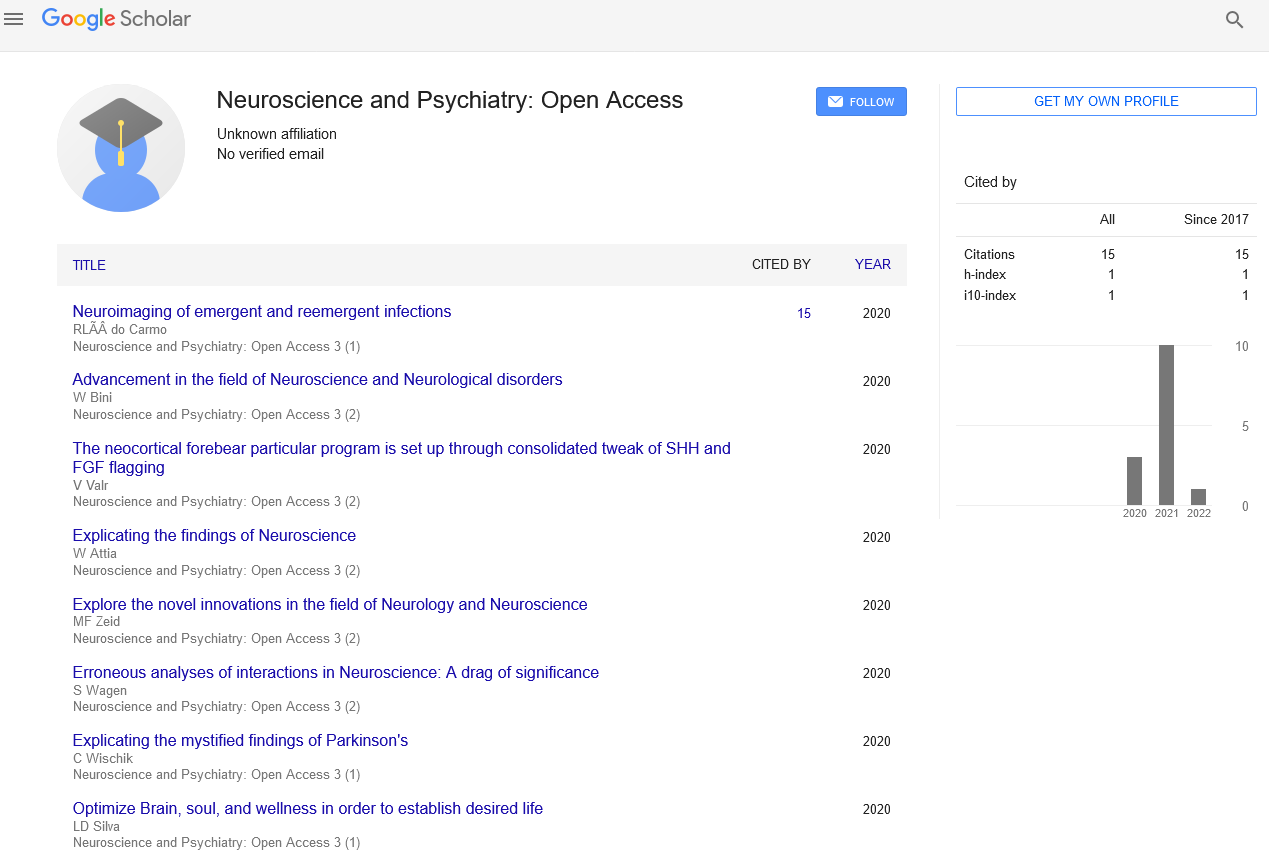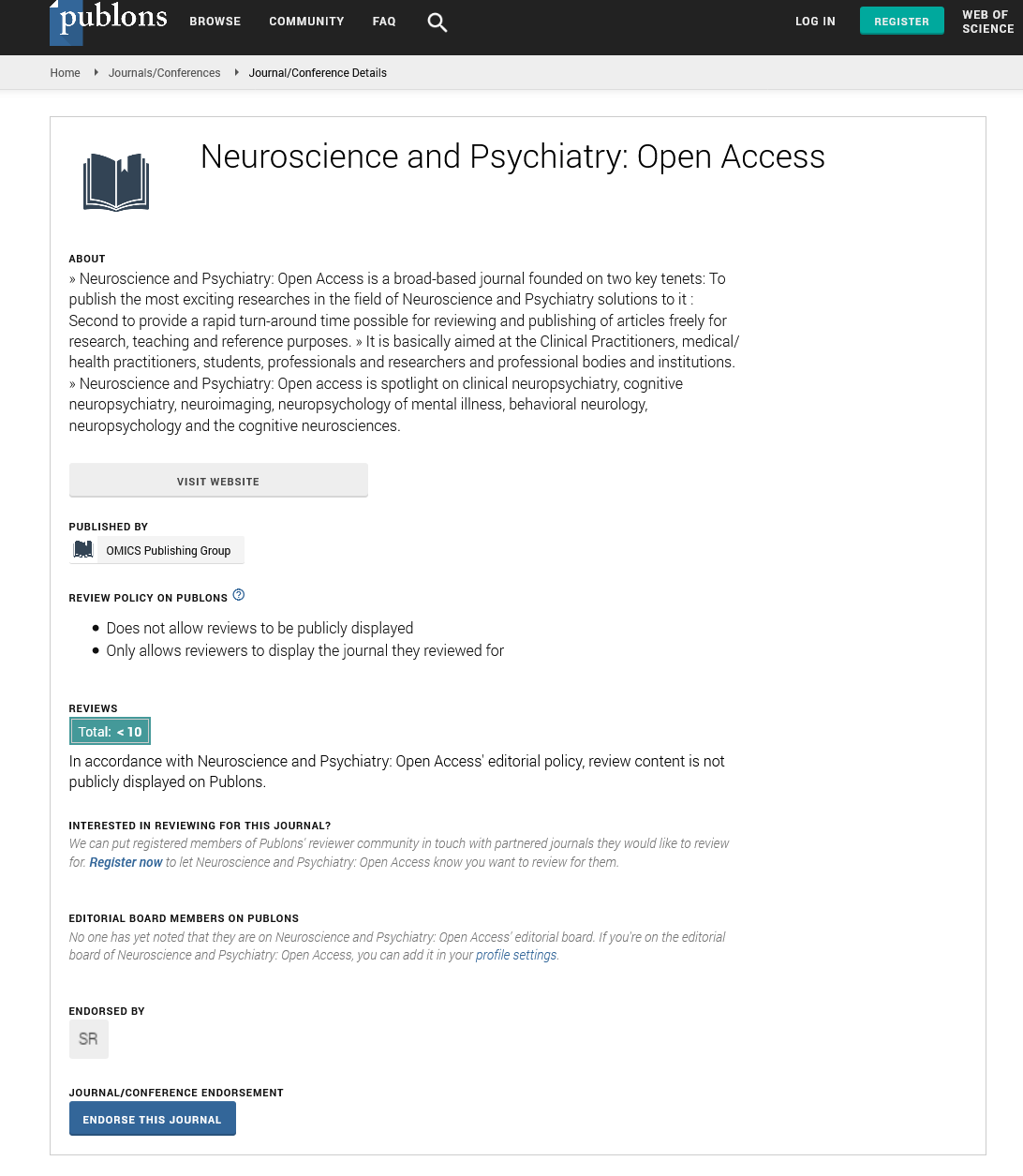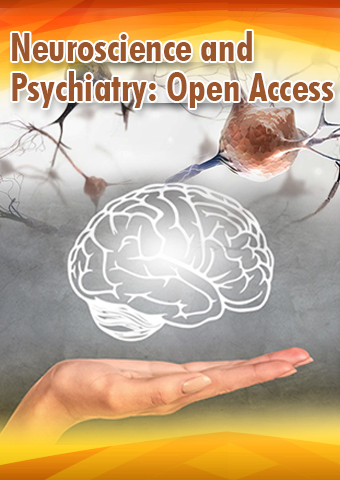Perspective - Neuroscience and Psychiatry: Open Access (2023) Volume 6, Issue 5
Decoding the Genetic Landscape of Psychiatry: Unraveling the Complex Relationship
- Corresponding Author:
- Varun Venkat
Department of Psychiatry, University of Wurzburg, Wurzburg, Germany
E-mail: varun.v1243@med.uni-heidelberg.de
Received: 04-09-2023, Manuscript No. NPOA-23-119198; Editor assigned: 06-09-2023, PreQC No. NPOA-23-119198 (PQ); Reviewed: 20-09-2023, QC No. NPOA-23-119198; Revised: 29-09-2023, Manuscript No. NPOA-23-119198 (R); Published: 09-10-2023, DOI: 10.47532/npoa.2023.6(5).107-109
Introduction
The intricate interplay between genetics and psychiatry has become a focal point in the study of mental health and disorders. The field of psychiatric genetics seeks to understand how genetic factors contribute to the risk, development, and treatment of mental illnesses. This article delves into the complex relationship between genetics and psychiatry, exploring the genetic basis of psychiatric disorders, the role of genetic research in the field, and the ethical implications associated with genetic studies in psychiatry.
Description
Genetics and psychiatry: An overview
Genetic factors in psychiatry: Psychiatric disorders, such as depression, schizophrenia, bipolar disorder, and anxiety disorders, are complex conditions with both genetic and environmental influences. Genetic factors contribute to an individual’s susceptibility to these disorders, making it vital to investigate the role of genes in their etiology.
Heritability: Heritability is a measure that quantifies the proportion of variation in a trait or disorder that can be attributed to genetic factors. Heritability estimates suggest that various psychiatric disorders have a substantial genetic component. For example, heritability estimates for schizophrenia are around 70-80%, indicating a strong genetic influence.
The polygenic nature of psychiatric disorders: Psychiatric disorders are often polygenic, meaning that multiple genes are involved in their development. Unlike single-gene disorders like cystic fibrosis, psychiatric disorders result from the interplay of many genetic variations, each with a modest effect. These genetic variations may be common or rare.
Key concepts in psychiatric genetics
Common variants vs. rare variants: Common genetic variants are variations in DNA that are present in a significant portion of the population, typically with minor effects on disease risk. Rare variants, on the other hand, are genetic changes found in a small portion of the population and can have a more substantial impact on disease susceptibility.
Research in psychiatric genetics investigates both common and rare variants to gain a comprehensive understanding of the genetic basis of mental illnesses.
Candidate genes and Genome Wide Association Studies (GWAS): Candidate gene studies have historically explored specific genes suspected to be associated with psychiatric disorders. However, these studies are limited by a bias towards well-known genes and prior assumptions.
Genome Wide Association Studies (GWAS) offer a more unbiased approach. GWAS analyze hundreds of thousands to millions of genetic variations across the entire genome, enabling the discovery of novel genetic risk factors. These studies have identified numerous genetic variations associated with psychiatric disorders.
Endophenotypes: Endophenotypes are intermediate traits or characteristics that are more directly related to the genetic underpinnings of psychiatric disorders. By studying endophenotypes, researchers aim to identify the genetic variations contributing to the risk of these disorders more precisely. For example, cognitive impairments or neuroimaging findings may serve as endophenotypes for schizophrenia.
Genetic contributions to specific psychiatric disorders
Schizophrenia: Schizophrenia is a complex, severe mental disorder characterized by hallucinations, delusions, disorganized thinking, and cognitive impairments. Numerous genetic variations have been associated with schizophrenia, including rare Copy Number Variations (CNVs) and common Single Nucleotide Polymorphisms (SNPs).
Bipolar disorder: Bipolar disorder is marked by recurrent episodes of depression and mania. Research has identified specific genes and genomic regions associated with bipolar disorder, particularly genes involved in neuroplasticity and synaptic function.
Major depressive disorder: Major Depressive Disorder (MDD) is a common mood disorder characterized by persistent sadness, loss of interest or pleasure, and other symptoms. Genetic studies have implicated several genes involved in neurotransmitter regulation and neural plasticity in the risk of MDD.
Autism Spectrum Disorder (ASD): ASD is a neurodevelopmental disorder with a strong genetic component. Studies have uncovered multiple rare variants, such as de novo mutations, contributing to ASD. These genetic findings have improved our understanding of the underlying biology of autism.
The impact of genetic research in psychiatry
Advancing understanding: Genetic research has expanded our understanding of the biological underpinnings of psychiatric disorders. By identifying specific genes and genetic variations associated with these conditions, researchers can gain insights into the molecular and cellular mechanisms at play.
Precision medicine: One of the most promising applications of genetic research in psychiatry is the development of precision medicine approaches. By understanding an individual’s genetic risk factors, clinicians can tailor treatment strategies to be more effective and have fewer side effects. For instance, genetic information can guide medication selection and dosing.
Early detection and prevention: Genetic research has the potential to identify individuals at higher risk for developing psychiatric disorders. With this information, interventions and prevention strategies can be implemented earlier in life to reduce the likelihood of illness onset.
Targeted therapies: Identifying specific genetic risk factors for psychiatric disorders may lead to the development of targeted therapies. For example, if a gene associated with a particular disorder is found to be overactive, medications or interventions may be designed to modulate that gene’s activity.
Challenges and ethical considerations
Polygenicity and complexity: The polygenic nature and complexity of psychiatric disorders pose challenges in understanding how multiple genetic variations interact to increase susceptibility. This complexity necessitates large-scale studies to uncover these interactions accurately.
Ethical concerns: Genetic research in psychiatry raises ethical concerns, particularly regarding privacy, consent, and potential stigmatization. It is crucial to safeguard the privacy of individuals who participate in genetic studies and to ensure that informed consent is obtained.
Misinterpretation of genetic information: There is a risk of misinterpretation of genetic information, leading to unwarranted fear or complacency. Ensuring that genetic information is conveyed accurately and comprehensively to both patients and clinicians is essential.
Genetic determinism: It is important to emphasize that genetics is only one aspect of psychiatric disorders. Environmental factors, including early life experiences and stress, also play significant roles in their development.
Conclusion
The study of genetics in psychiatry has revolutionized our understanding of the genetic underpinnings of mental disorders. It has provided valuable insights into the complex interplay between genetic and environmental factors in the development of conditions such as schizophrenia, bipolar disorder, major depressive disorder, and autism spectrum disorder.
As the field of psychiatric genetics continues to advance, it holds the potential to revolutionize the diagnosis and treatment of mental illnesses. By integrating genetic information into clinical practice, researchers and clinicians can move closer to the goal of personalized medicine, early detection, and targeted interventions, ultimately improving the lives of individuals affected by psychiatric disorders. However, it is imperative to address ethical concerns and consider the multifaceted nature of these conditions to ensure that genetic research in psychiatry is both responsible and beneficial to society.


